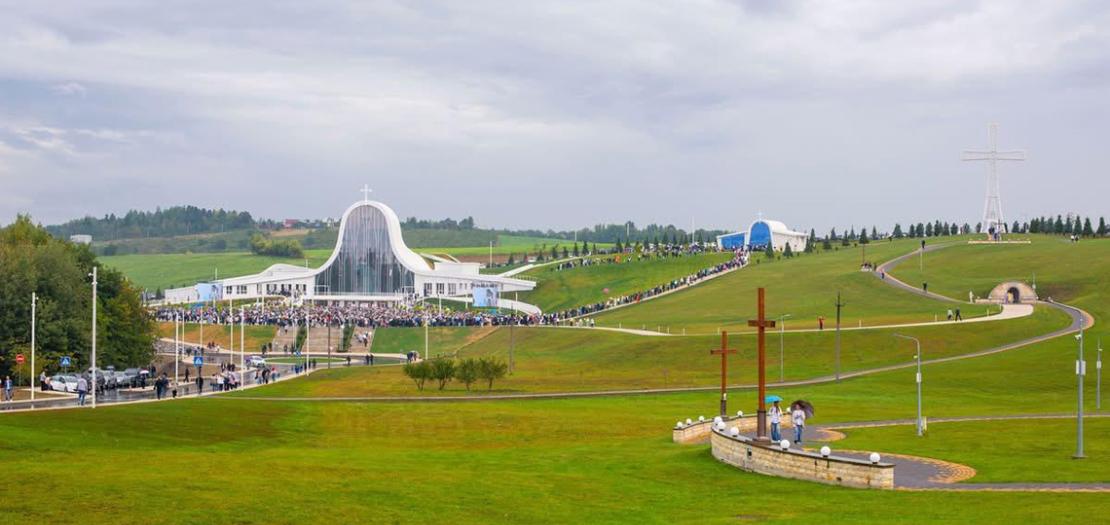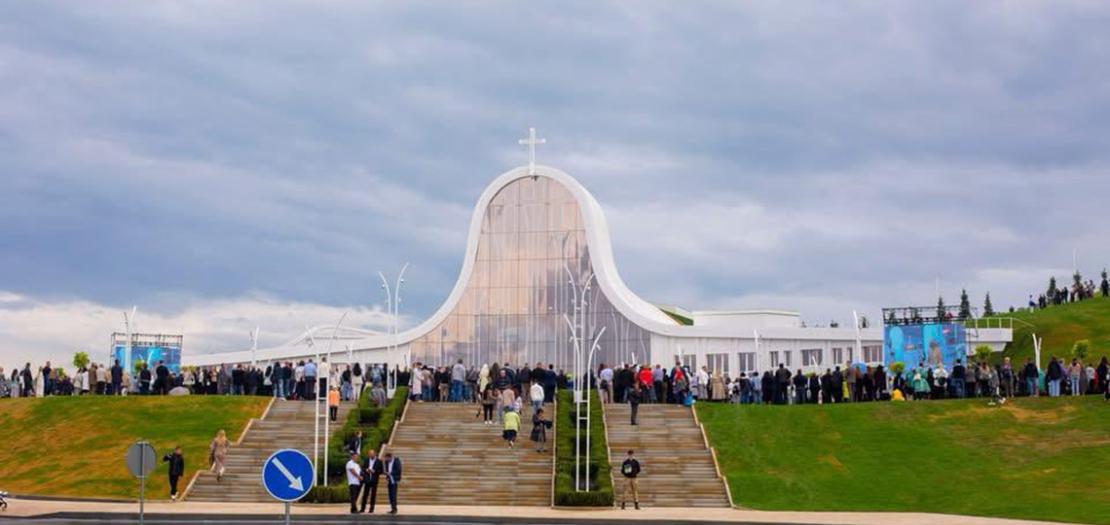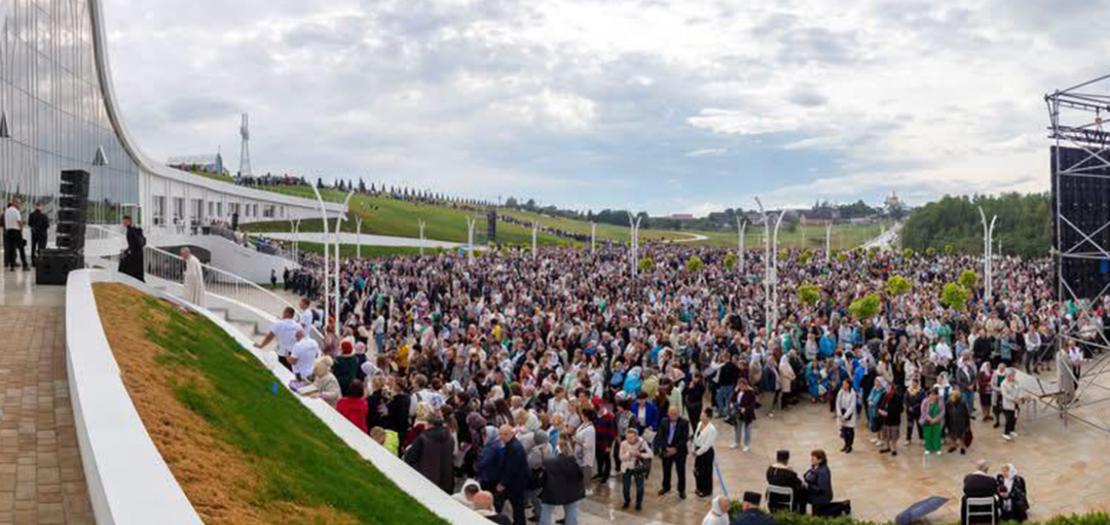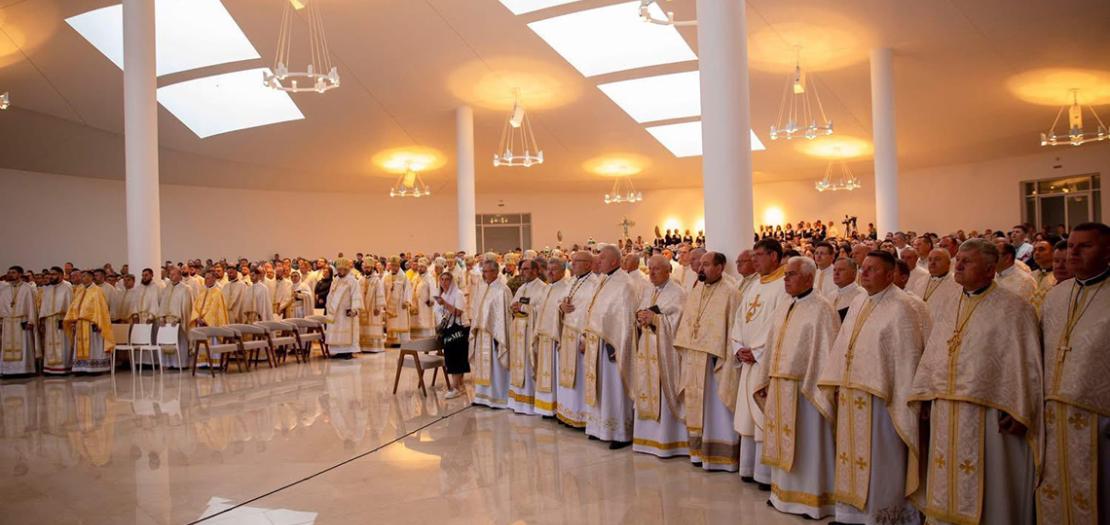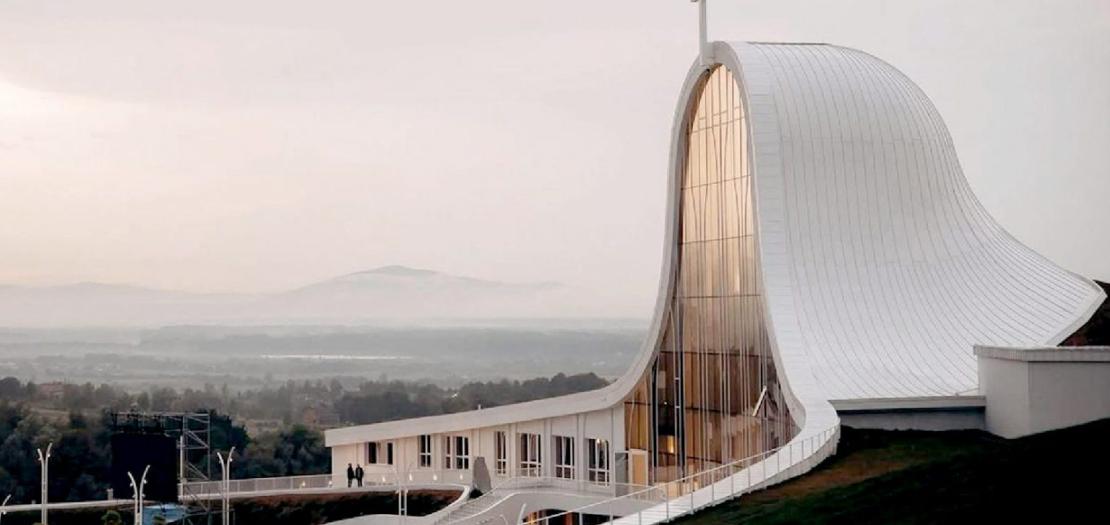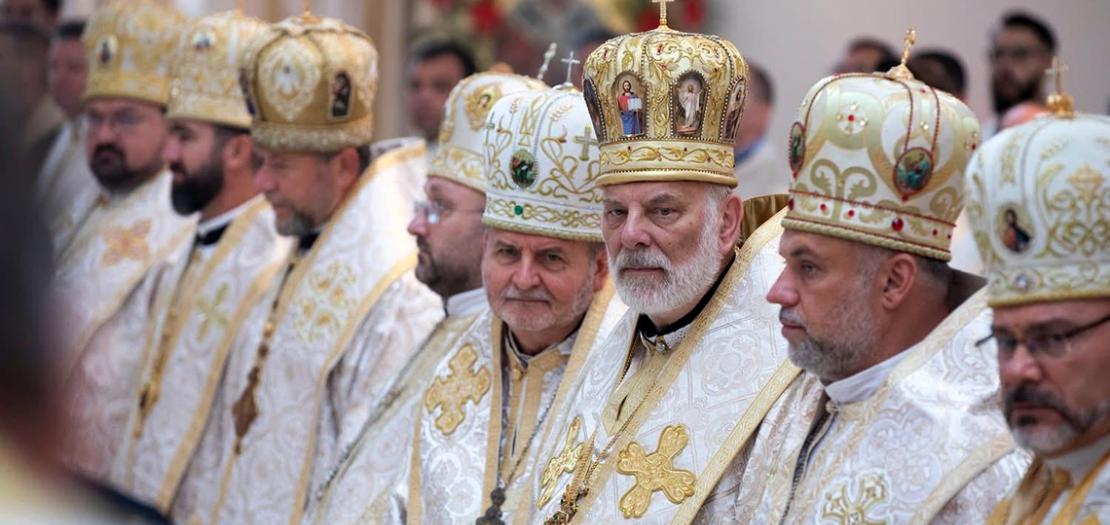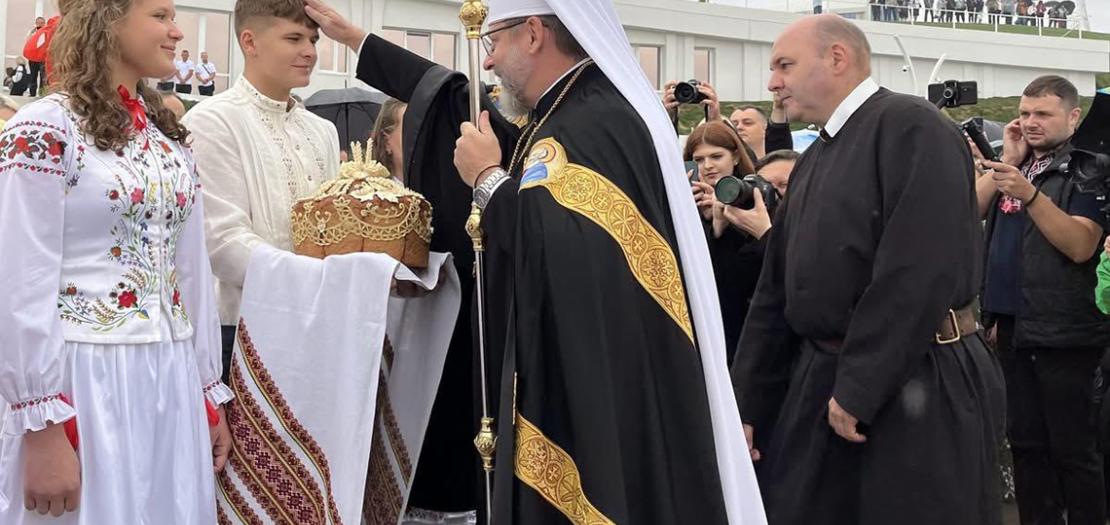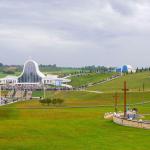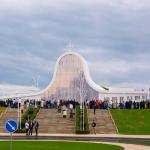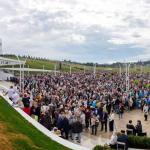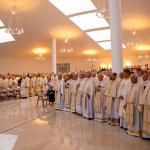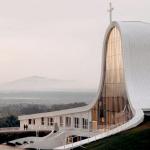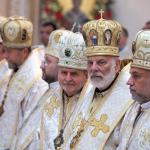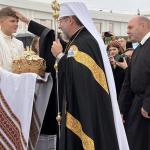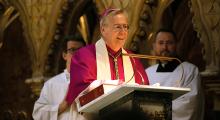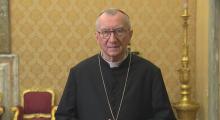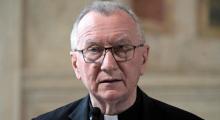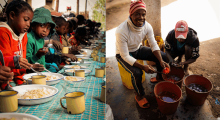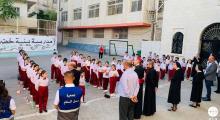Issued by the Catholic Center for Studies and Media - Jordan. Editor-in-chief Fr. Rif'at Bader - موقع أبونا abouna.org
On a late summer day marked by fasting and prayer across the Catholic world, thousands of pilgrims converged on the village of Starun in western Ukraine to witness the blessing of a new basilica dedicated to one of the country’s most venerated martyrs.
The liturgy, celebrated on August 22, united layers of memory, suffering, and hope. Bishop Kenneth Nowakowski, who leads the Ukrainian Greek Catholic Eparchy of the Holy Family in London, presided over the rite of blessing in the presence of Major Archbishop Sviatoslav Shevchuk of Kyiv-Halych, the spiritual head of the Ukrainian Greek Catholic Church. The altar was consecrated and the basilica solemnly entrusted to the intercession of Blessed Bishop Simeon Lukach, a figure whose story embodies the endurance of faith under persecution.
For Archbishop Shevchuk and the more than twenty bishops who stood with him, the basilica is more than a new place of worship. It is a visible testament that the Church, once driven underground during decades of Soviet repression, continues to raise sanctuaries of light in the midst of new shadows of war.
Lukach’s witness remains central to this narrative. Arrested and imprisoned for his fidelity to Rome and his defense of the underground Church, he bore illness and deprivation until his death in 1964. Beatified by Pope John Paul II in 2001, his life has become a point of pilgrimage and prayer in his native region. “Prayer, deep faith in God, and unity with Peter sustained bishops, clergy, religious, and lay faithful through the clandestine years of the Soviet era,” Bishop Nowakowski reflected. “Blessed Simeon is a living inspiration for us today.”
The timing of the celebration carried wider resonance. Pope Leo XIV had dedicated that same day to global fasting and prayer for peace, naming Ukraine and Gaza among the places most scarred by violence. For pilgrims kneeling in Starun, the Pope’s call was inseparable from the local experience: the sight of soldiers in uniform attending the liturgy, the families displaced from eastern regions, and the ongoing toll of Russia’s invasion.
The basilica itself, rising from the soil where Lukach once suffered, has already become a place of healing and intercession. For many, it is a sanctuary that reminds them not only of the Church’s wounds but also of its resilience. “From the blood of martyrs, new life comes,” one priest said quietly as the congregation sang hymns of thanksgiving.


